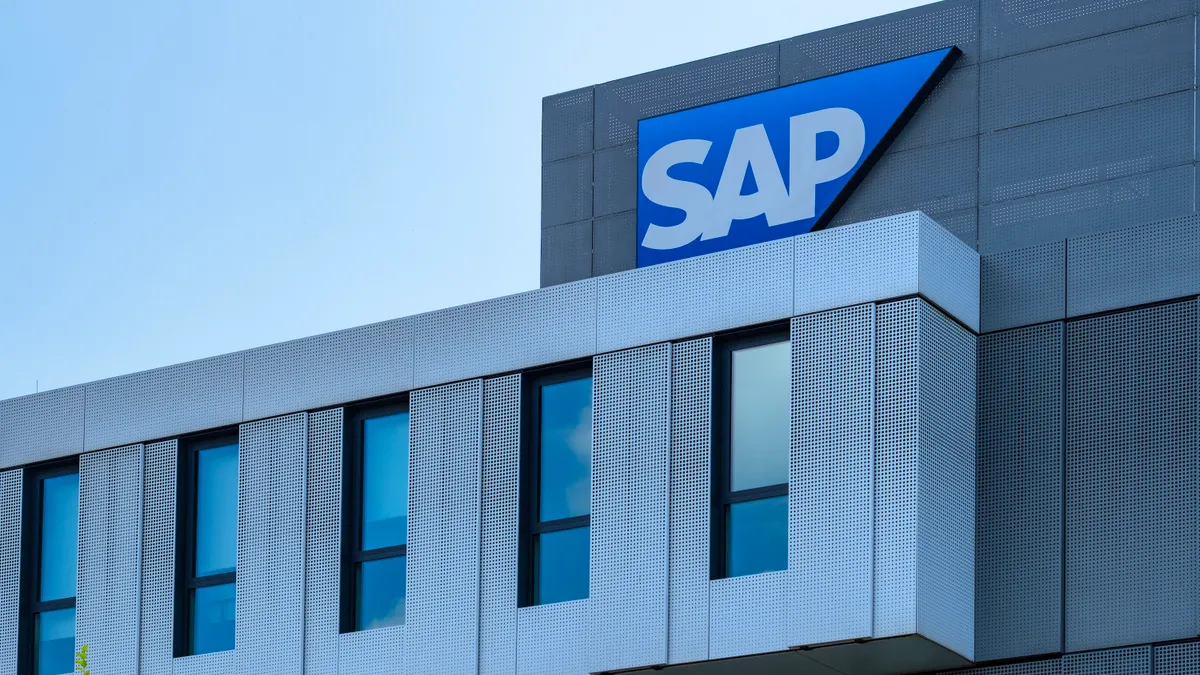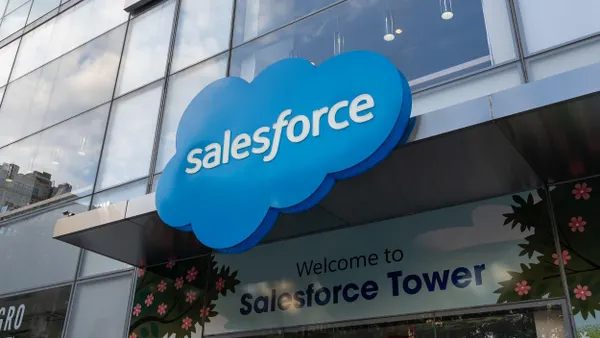Dive Brief:
- SAP faces a formal investigation from the European Commission over concerns the company’s provision of support and maintenance services for its ERP software might have affected market competition. The commission, the European Union’s executive branch, launched its investigation Wednesday.
- SAP provides ERP software to businesses for managing finances, projects and human resources in addition to maintenance and support services for the platform. The commission will investigate whether SAP restricted competition from third-party maintenance and support vendors for its ERP platform. It will also assess whether SAP’s practices constitute exploitative conduct.
- “We do not anticipate the engagement with the European Commission to result in material impacts on our financial performance,” SAP said in a Thursday statement. The company said it is working closely with the commission to resolve the issues raised.
Dive Insight:
Although SAP plans to work with the commission to resolve competition concerns, it might not escape unscathed, as the EU’s investigation raises pain points long-noticed by tech executives, analysts said.
“Maintenance and support services for SAP’s ERP licensed products have been under the lens of tech executives for a while now, as the German vendor has heavily pushed the migration to its subscription-based cloud product,” said Forrester Senior Analyst Dario Maisto.
The commission’s investigation takes issue with four practices implemented by SAP:
- Requiring customers to seek maintenance and support services directly from SAP for its on-premises software, which the commission said could prevent customers from “mixing and matching” services from suppliers at different price points.
- Stopping customers from ending maintenance and support services for software licenses they aren’t using, which could mean customers pay for unwanted or unused services.
- Regularly extending the length of initial on-premises ERP licenses, making it difficult to stop maintenance and support services.
- Charging reinstatement and back-maintenance fees to customers who subscribe to the company’s maintenance and support services after a period of absence.
“Thousands of companies across Europe use SAP’s software to run their business, as well as its related maintenance and support services,” Teresa Ribera, EVP for clean, just and competitive transition at the European Commission, said in the investigation announcement. “We are concerned that SAP may have restricted competition in this crucial aftermarket, by making it harder for rivals to compete, leaving European customers with fewer choices and higher costs.”
The larger issue stems from software providers creating roadblocks for on-premises products while pushing customers to the cloud, according to Alan Pelz-Sharpe, founder of market research firm Deep Analysis.
While the tech industry heavily promotes running products in the cloud, the majority of back-office systems remain on-premises in some sectors and countries and “enterprises have no interest or plans to move them to the cloud,” Pelz-Sharpe said.
Some enterprises prefer on-premises for security and data sovereignty reasons, but others might be resistant to costly and prohibitive subscription-based pricing, Pelz-Sharpe said. Software vendors like SAP are contending with mounting pressure to move on-premises customers to the cloud, which boosts revenue and enhances the ability for customer lock-in, he added.
The United Kingdom’s competition regulator, the Competition and Markets Authority, issued a report in May 2024 that found significant technical barriers make switching between cloud providers less appealing for business executives.
SAP said earlier this month that it plans to invest more than $23.3 billion to expand its cloud offerings in Europe.
“There is a perception among enterprise buyers that some technology vendors are using strong-arm tactics to force them off-premises, and they are increasingly ready to fight back,” Pelz-Sharpe said.
The EU has led changes to business offerings and practices that have come under antitrust scrutiny. Microsoft chose to unbundle its Teams communications product from its Office 365 offering in 2024 as a result of an EU antitrust investigation.
Maisto said businesses can likely expect to see SAP make concessions to its customers in the upcoming months.
“Looking at recent experiences with similar probes concerning other vendors, SAP may rather make more client-friendly conditions than risk a fine of up to 10% of its worldwide annual turnover under EU competition rules,” Maisto said.















